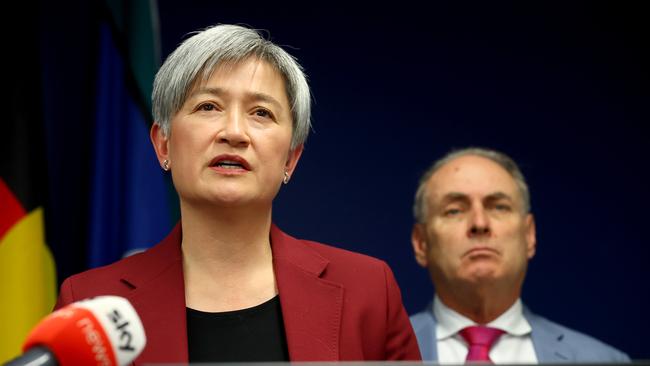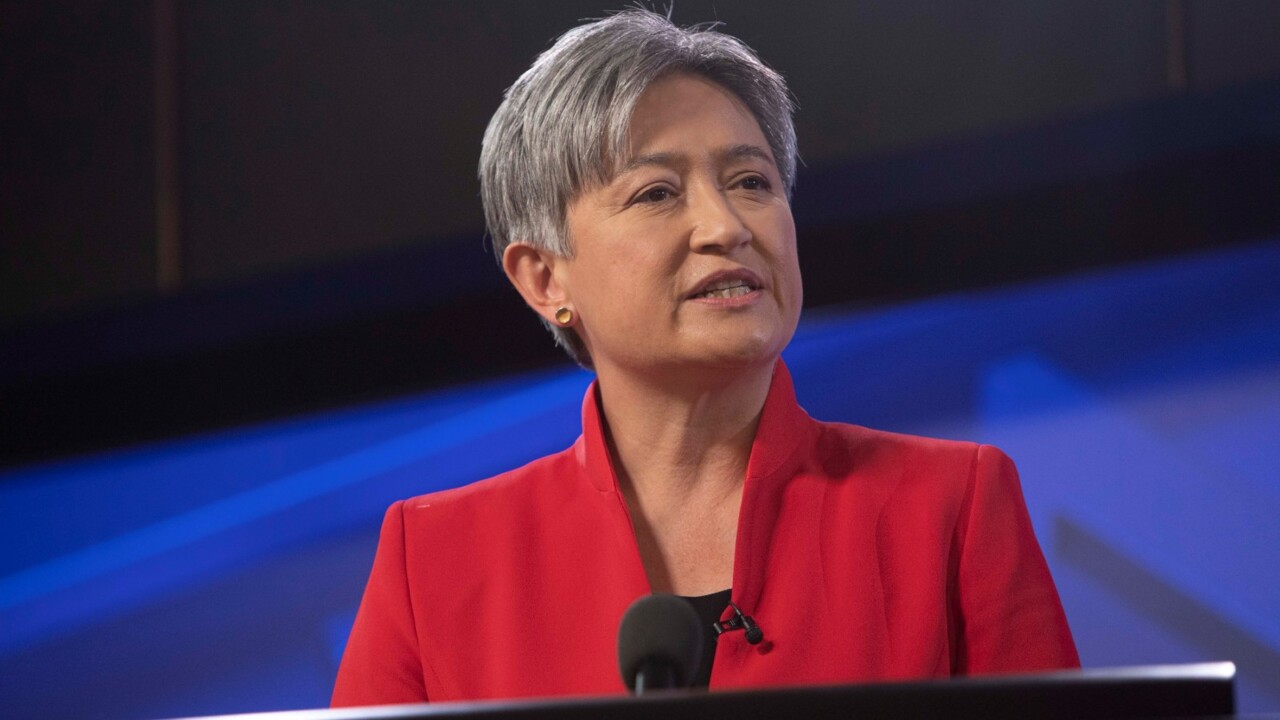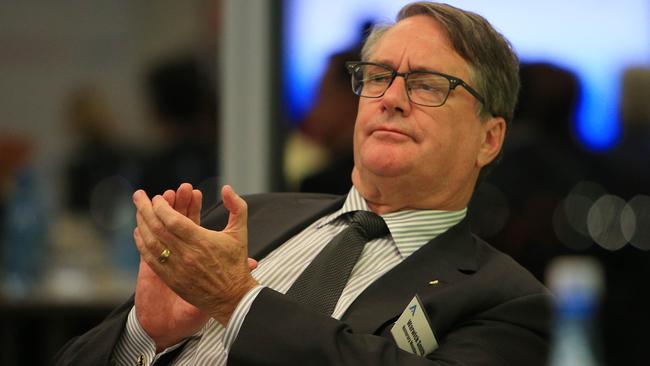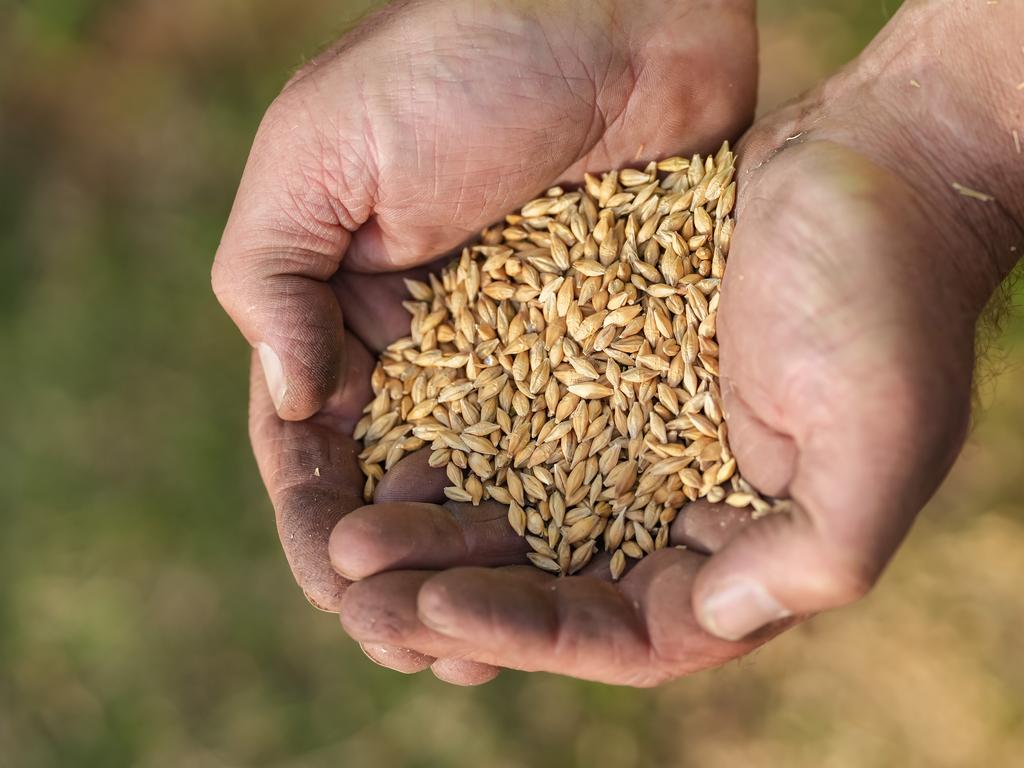Barley sanctions the ‘template’ for resolving wine trade dispute
China has lifted trade sanctions on Australian barley in a major thawing the Albanese government hopes will provide the ‘template’ for resolving the dispute over wine exports.

China has lifted trade sanctions on Australian barley in a major thawing of a three-year trade war between Beijing and Canberra, with the Albanese government turning its sights on reducing barriers for wine producers.
Foreign Minister Penny Wong announced on Friday that the Chinese government had agreed to drop anti-dumping and anti-subsidy tariffs on Australian barley imports after the dispute had been taken to the World Trade Organisation.
Senator Wong said the decision by Beijing would bring Australia’s WTO dispute with China to an end and “affirms the government’s approach to co-operate with China where we can, disagree where we must but engage in our national interest”.
The government learned on Friday that the Chinese Ministry of Commerce had decided to drop the tariffs, which The Weekend Australian understands comes after Beijing received a draft copy of the WTO ruling that was problematic for China.
Beijing implemented 80.5 per cent duties on Australian barley – worth about $900m a year – in May 2020, effectively scuppering exports to the Chinese market for the nation’s grain growers.

“We would not have been able to get this outcome without working through the WTO, which of course is an important part of the rules-based order, the multilateral order that Australia has such a great interest in,” Senator Wong said. “It’s an arrangement system which also encourages bilateral resolutions to disputes and that is what has been achieved.”
Senator Wong said the “positive development” would smooth the way for Anthony Albanese to visit China later in the year to “continue on the positive path we are on”.
Trade Minister Don Farrell said the process of lifting the trade tariffs, which were also imposed on Australian iron-ore, cotton, timber and beef, had been “expedited” through an approach that favoured “discussion and dialogue rather than disputation”, which he hoped to apply to the dispute over wine exports.
“We intend to use this process as a template for resolving the issue in respect of wine, which is still ongoing,” he said. “We do have a WTO case in respect of wine, and of course we’d like to see this process used to resolve that issue as we seek to resolve all of those outstanding issues.”
Lowy Institute senior fellow Richard McGregor warned against assuming that lifting of sanctions on wine would follow the same path as barley, with Chinese wine producers voicing opposition to dropping the sanctions.
“I think the fate of the wine industry is still up in the air,” he said. “When China first indicated it would lift barley tariffs, the government said they hoped, and indeed expected, the same model would be applied to Australian wine. I think it’s not clear at all that’s the case.”

Business Council of Australia international engagement committee chair Warwick Smith said the “positive outcome” from the “totemic issue” was welcome, but he raised concerns about the continued detention of Chinese-Australian journalist Cheng Lei.
“There are a few more issues that need to be resolved, beef and wine and cotton. We are hopeful those matters will be resolved and we have hopes the broader issue of Cheng Lei’s detention might also be addressed,” he said.
The price of West Australian barley surged by 20 per cent off the back of the announcement, with StoneX senior cash grains broker Stefan Meyer saying the downturn of the Russian barley industry cleared the way for Australian exporters to gain a greater share in Saudi Arabian and Chinese markets, which account for 50 per cent of global imports.
“The inability of Russia to cater to China’s barley demand could mean Australia no longer has to compete with Russia in the barley market,” he said.
The opposition welcomed the relaxing of the “illegal and punitive tariffs”, urging the government to continue to apply “every possible lever” to secure the release of Ms Lei and Australian writer Yang Jun.
ADDITIONAL REPORTING: GLENDA KORPORAAL








To join the conversation, please log in. Don't have an account? Register
Join the conversation, you are commenting as Logout